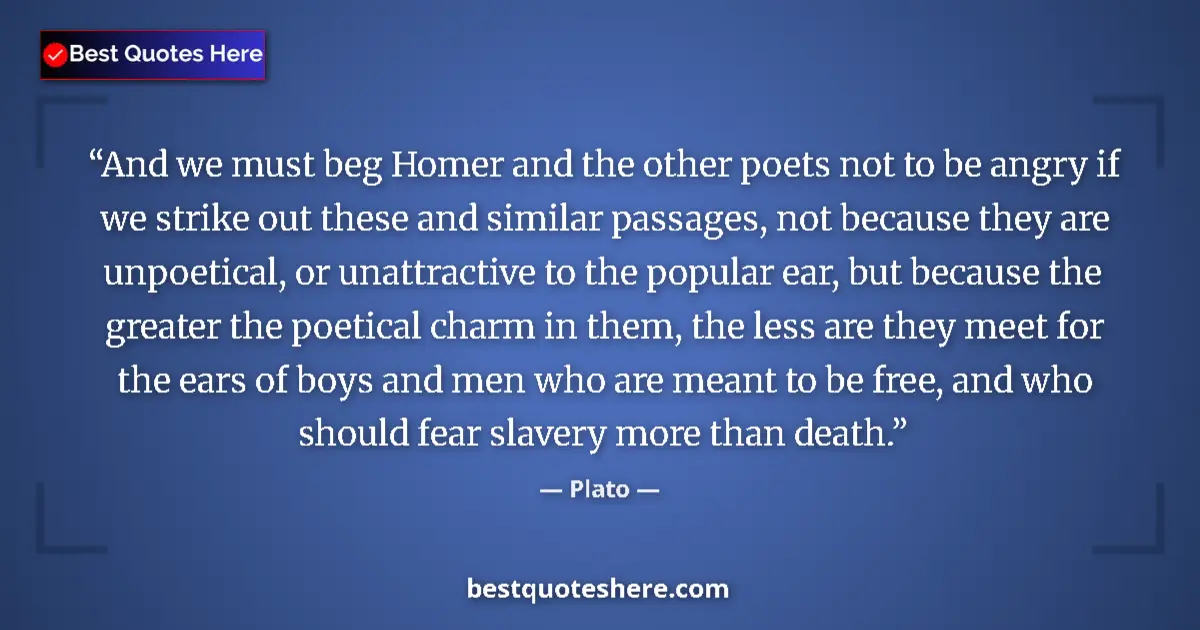"And we must beg Homer and the..." - Quote by Plato
And we must beg Homer and the other poets not to be angry if we strike out these and similar passages, not because they are unpoetical, or unattractive to the popular ear, but because the greater the poetical charm in them, the less are they meet for the ears of boys and men who are meant to be free, and who should fear slavery more than death.

More by Plato
“The democratic youth lives along day by day, gratifying the desire that occurs to him, at one time drinking and listening to the flute, at another downing water and reducing, now practicing gymnastic, and again idling and neglecting everything; and sometimes spending his time as though he were occupied in philosophy.”
“Human beings have Love for one another inborn in them - Love, reassembler of our ancient nature, who tries to make one out of two and to heal human nature.”
“The most virtuous are those who content themselves with being virtuous without seeking to appear so.”
More on Education
“There are two classes of poets - the poets by education and practice, these we respect; and poets by nature, these we love.”
“Most of us know what we should expect to find in a dragon's lair, but, as I said before, Eustace had read only the wrong books. They had a lot to say about exports and imports and governments and drains, but they were weak on dragons.”
“Men and boys are learning all kinds of trades but how to make men of themselves. They learn to make houses; but they are not so well housed, they are not so contented in their houses, as the woodchucks in their holes.”
More on Freedom
“Once I knew the depth where no hope was and darkness lay on the face of all things. Then love came and set my soul free. Once I fretted and beat myself against the wall that shut me in. My life was without a past or future, and death a consummation devoutly to be wished. But a little word from the fingers of another fell into my hands that clutched at emptiness, and my heart leaped up with the rapture of living. I do not know the meaning of the darkness, but I have learned the overcoming of it.”
“But strictly held by none, is loosely bound By countless silken ties of love and thought To everything on earth the compass round, And only by one's going slightly taut In the capriciousness of summer air Is of the slightest bondage made aware.”
“It would be curious to know what leads a man to become a stationer rather than a baker, when he is no longer compelled, as among the Egyptians, to succeed to his father's craft.”